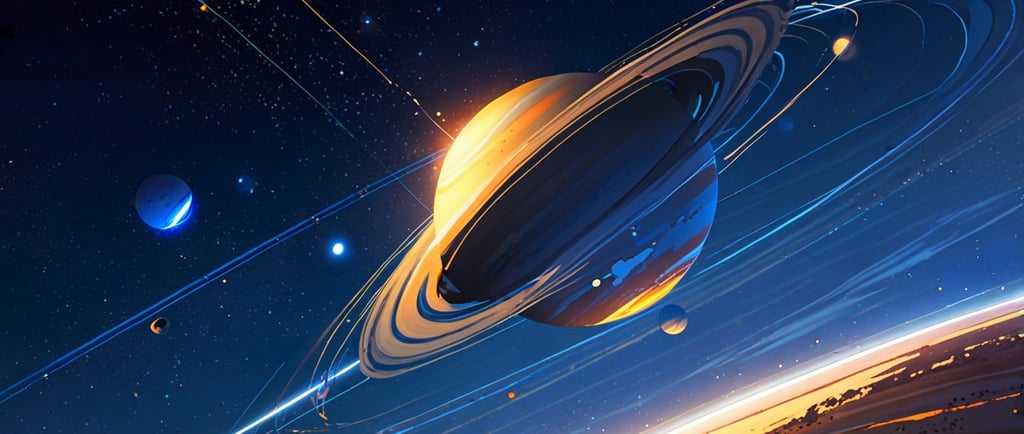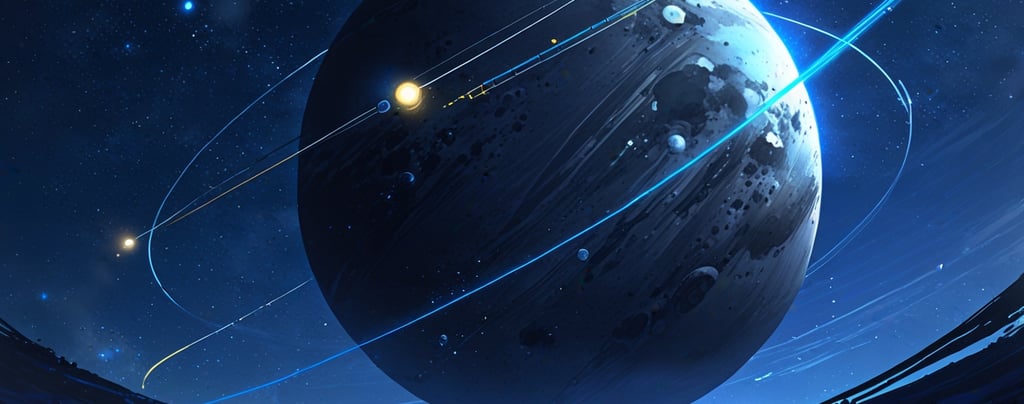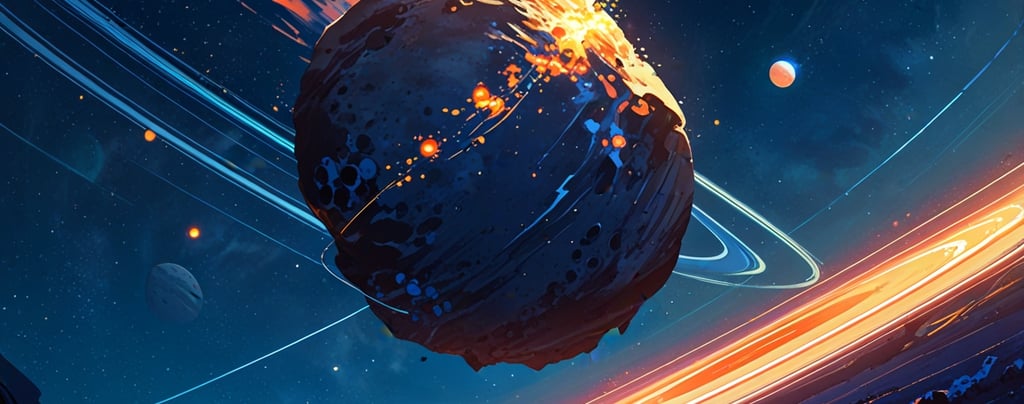Venus Asteroids: Risks of Collision with Earth
Explore the intriguing world of Venus asteroids and the potential risks they pose for collision with Earth. Learn about the science behind planetary defense and what the future may hold in this fascinating field.
Black Heart
5/27/20253 min read


Can Venusian Asteroids Threaten Earth’s Safety?
Introduction
When we talk about asteroid threats, most people immediately think of the asteroid belt between Mars and Jupiter, or near-Earth objects tracked by NASA. But here’s a question we rarely ask: what about asteroids that orbit near Venus? Could “Venusian asteroids” one day swing out of their orbit and endanger Earth?
This isn’t just a sci-fi thought experiment. Recent studies show Venus does, in fact, have its own family of asteroids, and their orbits occasionally bring them into Earth’s neighborhood. Let’s break it down.
What Are Venusian Asteroids?
Venusian asteroids are small rocky bodies that share Venus’s orbit or travel in orbits close to it. Some are classified as co-orbital asteroids, meaning they move in sync with Venus around the Sun, either leading it or trailing it.
In 2020, astronomers discovered 2020 AV2, the first asteroid orbiting entirely inside Venus’s orbit.
A few others, called quasi-satellites, hover around Venus like temporary companions.
These objects are rare but fascinating, and because Venus is Earth’s next-door neighbor, their behavior matters to us.
Could They Pose a Risk to Earth?
The short answer: yes, but not immediately.
Most Venusian asteroids are in relatively stable orbits, but gravitational nudges, especially from Venus, Earth, and even Jupiter, can slowly shift their paths over time. An asteroid that starts as Venus’s companion could, in a million years (or less), drift into a trajectory that crosses Earth’s orbit.
The real danger is that we don’t track Venusian asteroids nearly as well as near-Earth ones. Because they’re often close to the Sun in our sky, they’re hard to spot with ground-based telescopes.


Historical Evidence of Venus-Linked Objects
Some theories suggest past Earth impacts may have originated from inner Solar System asteroids. For example:
The Tunguska Event (1908): While widely believed to be a comet or small asteroid, some argue it could have been from an unusual orbit.
Crater studies: A few Earth craters have compositions matching asteroids that could have been perturbed from Venus-like orbits.
Though not proven, these examples show why we can’t rule out the Venus connection.
The Science of Orbital Drift
Asteroids don’t stay put. A few things can push them closer to us:
Gravity assists – Venus itself can act like a slingshot, redirecting its own asteroid companions.
Solar radiation (Yarkovsky effect) – Sunlight slowly alters an asteroid’s spin and orbit.
Planetary alignments – Rare but powerful, alignments between Venus, Earth, and Jupiter can destabilize orbits.
Over thousands to millions of years, these forces could push a Venusian asteroid onto a collision course with Earth.
FAQs
Q: Are any Venusian asteroids currently dangerous?
A: None are predicted to hit Earth in the near future. Most known Venusian asteroids are stable for at least thousands of years.
Q: Why don’t we detect more of them?
A: They orbit close to the Sun from our perspective, making them nearly invisible in daylight and tricky to observe at night.
Q: Could a Venusian asteroid cause a mass extinction?
A: If large enough, yes. Even a 1 km-wide asteroid could cause global devastation. But the chance in our lifetime is extremely low.


Key Points
Venus has its own family of asteroids, some inside its orbit.
They’re hard to detect, making them more mysterious than near-Earth objects.
Gravitational nudges could one day send them Earth’s way.
No immediate threat exists, but long-term monitoring is crucial.
What I Think
I think Venusian asteroids are one of those “silent risks” we don’t talk about enough. While the chance of impact is small, the fact that we can’t track them as well as near-Earth objects makes them worth paying attention to. If we’re serious about planetary defense, our eyes shouldn’t just be on the asteroid belt—we should also be looking toward Venus.
🔗 Related Articles from EdgyThoughts.com